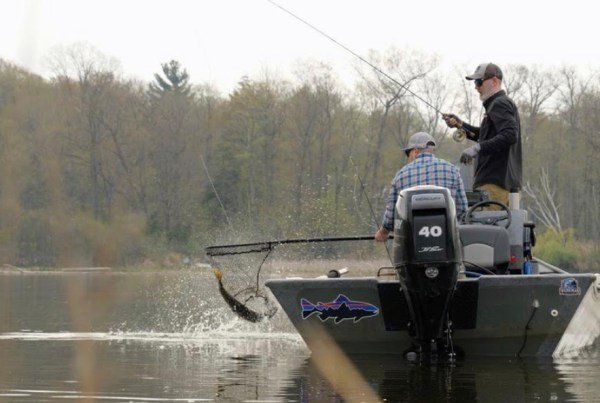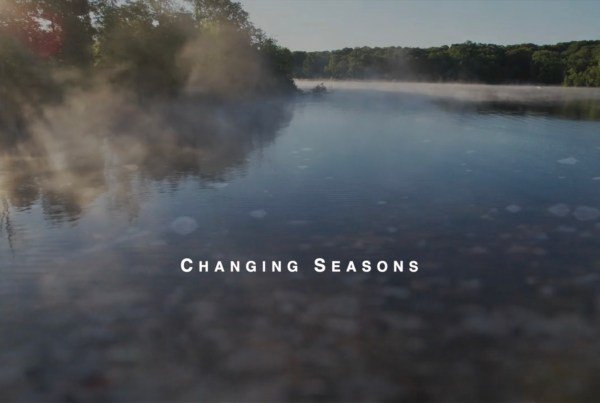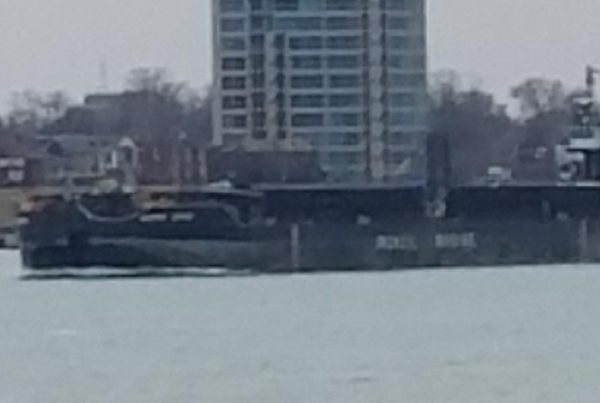“We abuse land because we regard it as a commodity belonging to us. When we see land as a community to which we belong, we may begin to use it with love and respect.”
― Aldo Leopold
This is one of my all-time favorite quotes from one of my all-time favorite authors and environmentalists. My name is Ben Preston. I am a third-year undergraduate student studying Environmental Policy and Decision Making at The Ohio State University, and am a lifelong outdoorsman. I have the privilege of interning at the National Wildlife Federation’s Great Lakes Regional Center this summer, working with their staff on a handful of instrumental environmental projects they are currently involved in, including the effort to stop Asian carp.
I live to be outside. Whether it’s hunting, fishing, hiking, or camping. I love spending my free time enjoying all of the wonders that nature has to offer. My earliest memory of falling in love with nature (before I even realized I had) was as a very young child, my dad teaching my sister and me the names of all of the different songbirds that would come into the feeders in our back yard. Once we learned to identify each bird by how they looked, he then taught us how to identify each of them by their unique songs. As I grew older, I continued to learn more from my dad about nature and it’s delicate, interconnected ecosystems, and how important it is to conserve all aspects of them. Through years spent hunting, fishing, and exploring with my family, I have developed a great love, appreciation, and respect for Mother Nature and the beautiful ecosystems within it. I look forward to spending this summer learning about and taking an active role in the conservation of our great natural resources.
This summer, I am excited to conduct research on some of the nation’s most detrimental invasive species and help develop strategies to combat each of them. One of the more notable of these invasive species is the Asian Carp. As they continue to spread across the country, wreaking havoc on local fisheries, it is vital that we do everything in our power to not only keep them out of the Great Lakes, protecting the unique, highly valuable fishery which they hold, but eradicate them out of the waterways that they have already invaded in states along the Mississippi River.
Another project I will be working on this summer is examining the impacts of toxic lead shot and fishing tackle on wildlife, both aquatic and terrestrial species. Lead poisoning is dangerous for all forms of wildlife, as ingestion of a single lead pellet can cause organ failure or brain damage. Animals directly consume lead pellets while foraging for food or scavenging gut piles left by hunters. Lead shot has been banned nationwide for waterfowl hunting for almost thirty years. Yet, lead is still used in nearly all other forms of ammunition, from upland game shotgun loads, to long-range rifle rounds. The National Wildlife Federation, through its Lead-Free Landscapes program, is encouraging hunters and anglers to voluntary adopt non-lead alternatives…..
Lastly, I will have the opportunity to participate in lobbying at state legislatures in both Michigan and Ohio, as well as potentially Congress in Washington D.C., to work on gaining support and funding from elected officials for some of the environmental protection and conservation initiatives NWF is working on. I look forward to working alongside some veteran NWF staff and gaining a vast amount of valuable knowledge and experience to help me for my years to come in this valiant fight to protect our wildlife.



